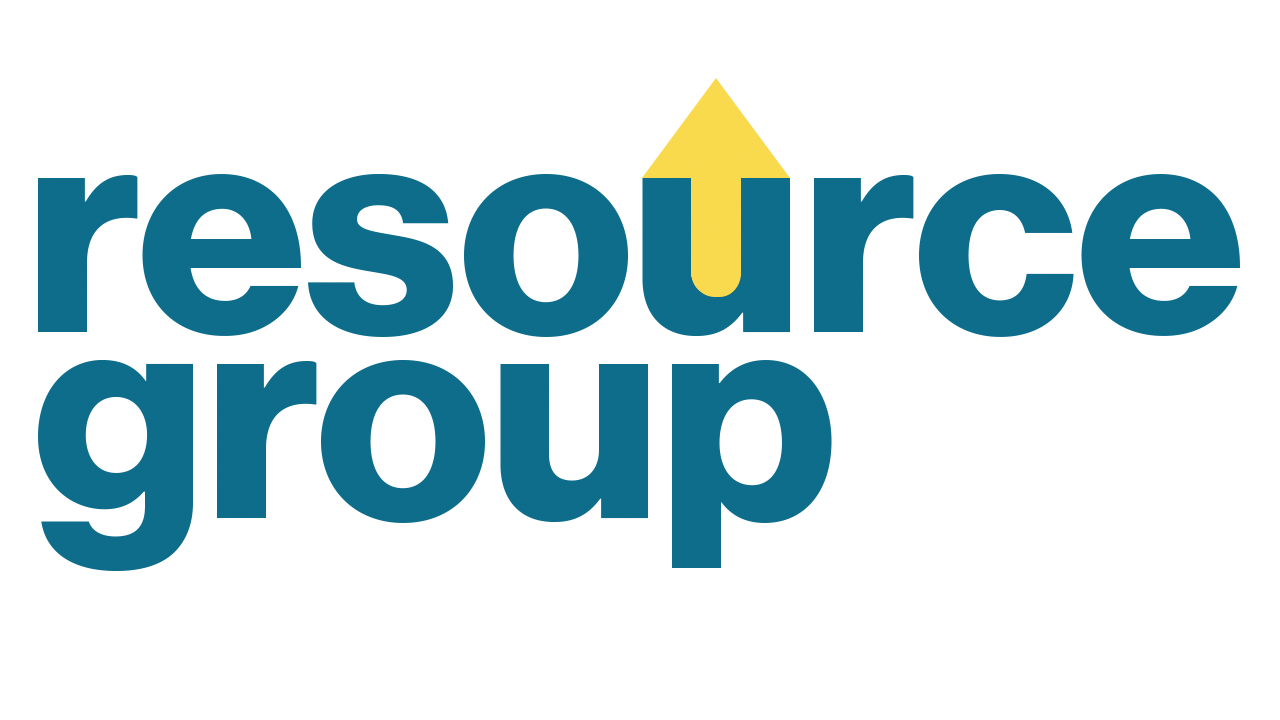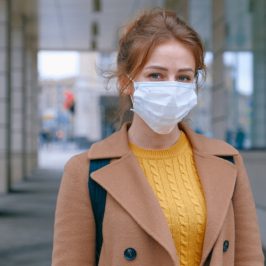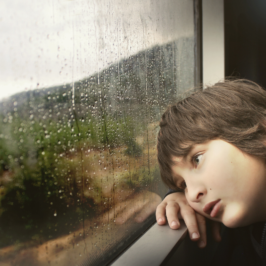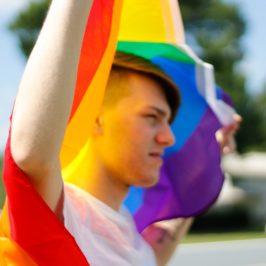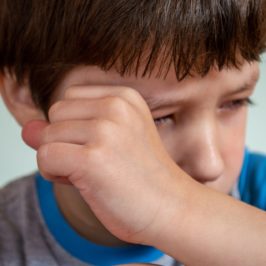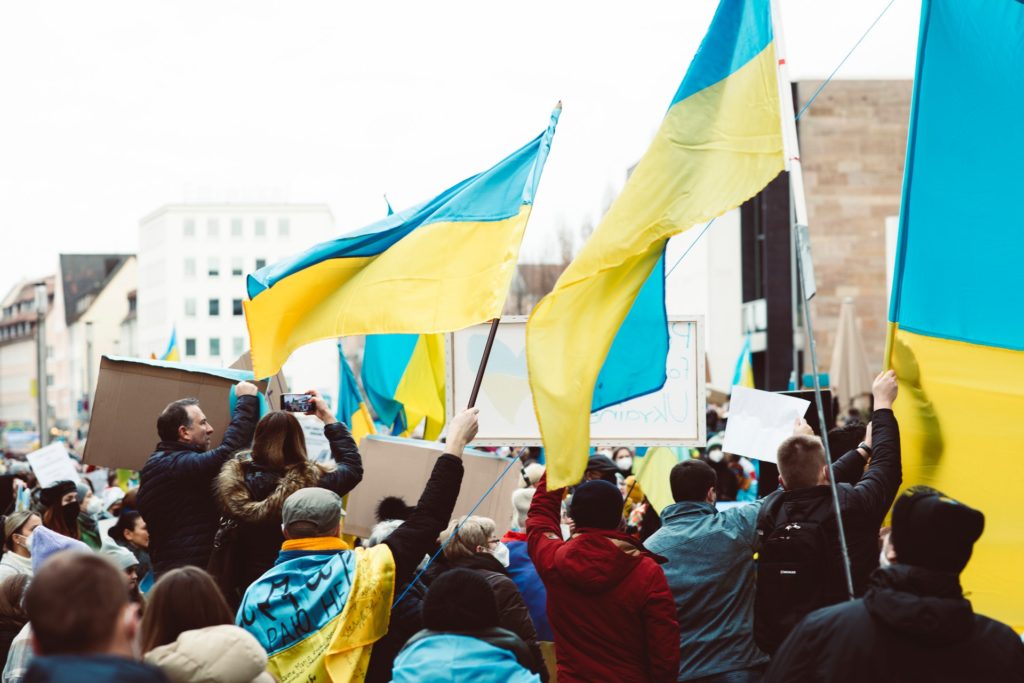
By: Brian Warner
From 1932 to 1933, between 3.5 and 5 million Ukrainians died in the Holodomor – “death by hunger” in Ukrainian. The man-made famine, devised by Stalin in retaliation for the Ukrainian independence movement, left people across the country malnourished and uncertain where they could go that wasn’t already facing the same problem.
Holodomor-survivor Nina Karpenko, then 87, told the BBC in 2013, “There was a deathly silence, because people weren’t even conscious. They didn’t want to speak or to look at anything . . . They thought today that person died, and tomorrow it will be me. Everyone just thought of death.”
More than 70 years after the genocide, doctoral psychology student Brent Bezo could still feel its aftereffects on the people of Ukraine. What he first saw as “a kind of social hostility and mistrust among the population” turned into a partnership with survivors, their children, and their grandchildren to study the impact the famine still had. Across generations, people were engaging in trauma-based coping strategies, from shame and anxiety to an indifference toward others, authoritarian parenting styles, high emotional neediness on the part of parents, and a reverence for food.
“Each generation seemed to kind of learn from the previous one, with survivors telling children, ‘Don’t trust others, don’t trust the world,’” Bezo said.
The idea that trauma could be passed down, either through the DNA or through learned behaviors taught to the next generation, first gained popularity in the mid-1960s from Vivian Rakoff, M.D. Psychiatrists began to notice especially high rates of psychological distress from children – and, by the late ‘80s, grandchildren – of Holocaust survivors. Compared to others, they were overrepresented by a massive 300% in psychiatric care referrals, with illnesses like anxiety, depression, and PTSD. Just like Bezo noticed in Ukraine a few decades later, many of them still seemed to be living in “survival mode.”
“The parents are not broken conspicuously,” Dr. Rakoff wrote, “yet their children, all of whom were born after the Holocaust, display severe psychiatric symptomatology. It would almost be easier to believe that they, rather than their parents, had suffered the corrupting, searing hell.”
The causes, though, are less clear.
Epigenetics, the idea that trauma can change people down to their DNA and be passed along in the genes of the next generation, is still a relatively new concept and very controversial. It doesn’t theorize that experiences can change genes, but change the way they’re expressed (like flipping a light switch on or off, rather than installing a new bulb). It might feel obvious to anyone who has experienced a trauma that it could (figuratively) rewire what makes you who you are, but scientific research into trauma has backed this feeling up.
In 2000, a study from Mount Sinai School of Medicine found that Holocaust survivors suffering from posttraumatic stress disorder (PTSD) were likely to have lower than average cortisol (“the stress hormone”) levels; their children had even lower levels. Similar results were found in a 2005 study with the children of women who’d been at the World Trade Center on September 11.
And like nuclear waste for the mind, it looks like it may take hundreds of years for trauma to finally break down. Most research into inter-generational trauma has focused on experiences taking place in the 20th and 21st centuries, but research has begun to take experiences from much longer ago into account – namely for Black Americans and Indigenous Americans. Native American Boarding Schools, for instance, were used by the U.S. government from the mid-17th to the early 20th centuries to “civilize” children by stripping them of their families, cultures, languages, and names. Now, Dr. Donald Warne of the University of North Dakota has noted differences in the DNA structure of boarding school survivors.
But likely, this doesn’t tell the entire story.
Like Bezo saw in Ukraine, Dr. Warne and Dr. Denise Lajimodiere of North Dakota State University wonder how traumas like these would impact someone’s parenting skills. Alongside global-scale traumas like genocide, personal traumas like poverty, racism, sexual assault, and abuse can create just as much psychological distress. “These social circumstances can have an impact on the quality of parenting skills for the next generation, leading to continued intergenerational health disparities,” the doctors say.
Iraq War veteran Brooke King has seen this firsthand. In an article for The Atlantic, she details the ways her experiences as an army mechanic have influenced her role as a mother, saying,
[My children’s] lives have been shaped by my PTSD triggers and my combat experience . . . As a result, my children have never fully experienced a July Fourth or Memorial Day with fireworks. They avoid creating loud bangs and even sometimes jump or startle at noises just as easily as I do. They have learned to associate loud explosions with bombings and war rather than celebrations and festivities.
Mental health researchers point out that, for as effective as “survival messages” like these are at keeping someone safe in a warzone, they can also isolate people and reenforce the idea that asking for help is dangerous. Fear of personal disclosure “is exactly why it is so hard for trauma survivors to seek and accept support,” says trauma psychologist Elena Cherepanov, Ph.D., of Cambridge College.
Now, 90 years after the Holodomor, how many people fighting today in Russia’s invasion of Ukraine are already carrying their grandparents’ trauma, and how many of today’s experiences will be reverberating for another 90 years?
It’s a reminder that mental health is also an issue of human rights and politics. Wars don’t end just because treaties are written, and famines don’t end just because there’s food again. For people like Indigenous Americans, often living in states with some of the fewest mental health resources, trauma can be left to fester. “You have to admit that [the Holodomor] was done if you want to have any kind of human progress,” says Virko Baley, a Ukrainian-born composer. “You can’t wrap it up and say that it wasn’t.”
DISCLAIMER
The information, including but not limited to, text, graphics, images and other material contained on this website are for informational purposes only. No material on this site is intended to be a substitute for professional medical advice, diagnosis, or treatment. Always seek the advice of your physician or other qualified healthcare provider with any questions you may have regarding a medical condition or treatment and before undertaking a new health care regimen, and never disregard professional medical advice or delay in seeking it because of something you have read on this website.
